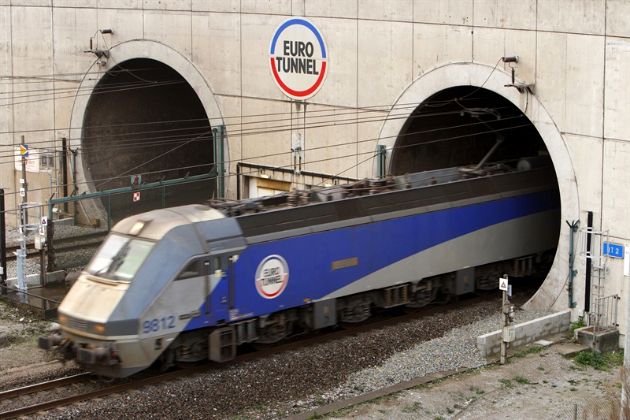The Mekong Delta is sinking fast, but it can still be saved
Sustainability Times
14 Jan 2022, 11:54 GMT+10

Photo: Pixabay/Quangpraha
The Mekong Delta in Vietnam is a scenic region home to about 17 million people, but this economically vital area of the Southeast Asian nation is sinking fast. A primary reason: large swathes of land there have been poldered for agriculture and aquaculture.
In fact, say scientists, by the middle of the century much of the delta will have sunk below sea level unless the trend is reversed.
Two scientists from the Wageningen University & Research and Utrecht University in the Netherlands have reached this conclusion after examining how the delta will develop over the next three decades. They did so through computer modeling that accounted for variables such as land subsidence, rises in sea level and sediment shortages.
Alreadythe delta is only around a meter above sea level on average, they report, but large areas in it are sinking as a result of groundwater extraction, the depletion of river sediments and rising sea levels.
"We saw that the delta will likely sink very fast compared to sea level," notes Frances Dunn, a researcher at Utrecht University and one of the authors of a new study."For the future of the people who live and earn their living there, these high rates of relative sea-level rise are worrying."
The changes are mainly driven by manmade causes whose impacts are having increasingly noticeable effects, the scientists say.
"The delta sinks as a natural process, but in recent years land subsidence has been drastically accelerated by humans due to unsustainable groundwater extraction," explains Philip Minderhoud, an assistant professor at Wageningen University & Research who was the paper's other author.
"This combination of land subsidence and sea-level rise is what we call ‘relative sea-level rise,' and this is what people in the delta experience," he adds.
One way of mitigating the process could involve artifically accumulating sediment at certain locations in the delta so as to raise it, the experts say.
"For example, we looked at what would happen if you focused on sedimentation around the city of Can Tho. Even then, you can only protect one side of the city with sediment because there is a river on the other side of the city, and the rest of the delta sinks more because it won't receive any river sediment," Dunn explains.
And there is worse news for locals in the area, which is that "there is simply too little sediment available to compensate for how fast the delta sinks relative to sea level," in the words of Minderhoud.
That is why a workable strategy would be to supplement fluvial sendiment with measures to retain organic material from the cultivation of rice and other crops while ensuring that further land subsidence ceases. This could gain precious time for the delta to adapt in the face of rising sea levels driven by climate change.
"[W]ith current rates of subsidence and sediment starvation, fluvial sediments alone can only preserve elevation locally, even under optimistic assumptions, and organic sedimentation could potentially assume a larger role," the scientists observe in their paper.
"While sedimentation strategies alone have limited effectiveness in the present context, combined with enhanced organic matter retention and interventions reducing anthropogenic-accelerated subsidence, they can considerably delay future relative sea-level rise, buying the delta crucial time to adapt."
The post The Mekong Delta is sinking fast, but it can still be saved appeared first on Sustainability Times.
Source: Sustainability Times
 Share
Share
 Tweet
Tweet
 Share
Share
 Flip
Flip
 Email
Email
Watch latest videos
Subscribe and Follow
Get a daily dose of Asia Bulletin news through our daily email, its complimentary and keeps you fully up to date with world and business news as well.
News RELEASES
Publish news of your business, community or sports group, personnel appointments, major event and more by submitting a news release to Asia Bulletin.
More InformationInternational
SectionLawmakers debate military expansion amid European security fears
BERLIN, Germany: German Lawmakers are debating whether to loosen the country's strict borrowing rules to fund military expansion. ...
Trump to end U.S. government international news services
The Voice of America may not live up to its ambitious name for much longer. Michael Abramowitz, the director of VOA, said in a Facebook...
Dozens dead as U.S. launches large scale offensive in Yemen
WASHINGTON, DC - U.S. President Donald Trump has joined Israel's war on Yemen's Houthis, days after the group said it would resume...
SPHEREx telescope to create a three-dimensional map of the cosmos
LOMPOC, California: NASA launched a new telescope into space this week to study the origins of the universe and search for hidden water...
Texas, New Mexico report 28 new measles cases in five days
AUSTIN/SANTA FE: Texas/New Mexico have reported 28 new measles cases in the past five days, bringing the total to 256 since the outbreak...
NTSB urges FAA to restrict helicopters near Reagan National Airport
WASHINGTON, D.C.: U.S. Transportation Secretary Sean Duffy announced that helicopters will be permanently banned from flying near Washington...
Business
SectionIntel stock jumps 15% as Lip-Bu Tan named CEO
SANTA CLARA, California: Intel's stock soared nearly 15 percent this week following the announcement that former board member Lip-Bu...
UAW files labor complaint as Volkswagen cuts Tennessee production
DETROIT, Michigan: Volkswagen's decision to scale back production at its Chattanooga, Tennessee plant has sparked backlash from the...
Spotify paid a record $10 billion in music royalties in 2024
STOCKHOLM, Sweden: Spotify set a new milestone in 2024, paying out US$10 billion in royalties—the highest annual payout to the music...
Jaguar Land Rover opts out of EV production at Tata’s India plant
NEW DELHI, India: Jaguar Land Rover (JLR) has decided against manufacturing electric vehicles at Tata Motors' upcoming $1 billion factory...
Virgin Group aims to raise $900M for cross-channel rail venture
LONDON, U.K.: Virgin Group is seeking to raise $900 million to fund its plan to launch cross-channel rail services, positioning itself...
Boeing's February deliveries surge to 44, up from 27 last year
SEATTLE, Washington: Boeing saw a significant increase in aircraft deliveries in February, reporting 44 planes delivered compared to...













